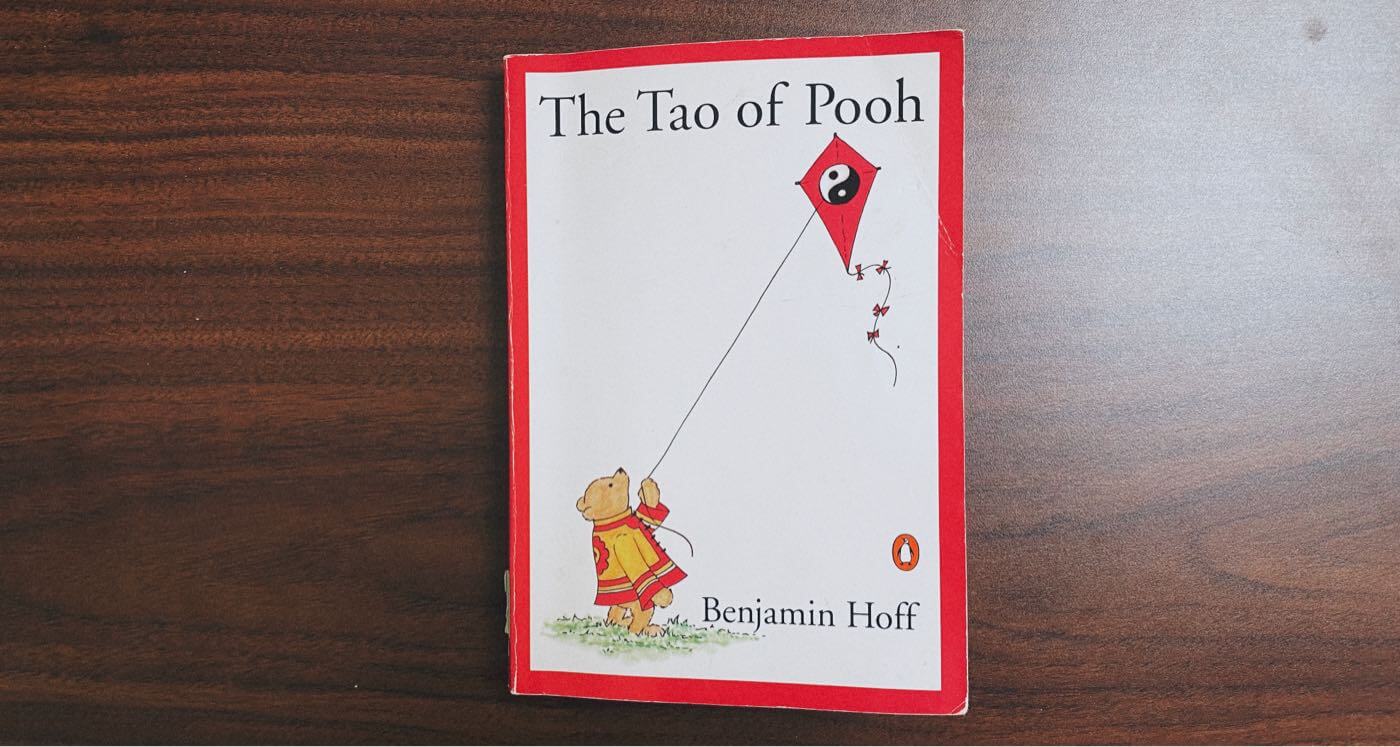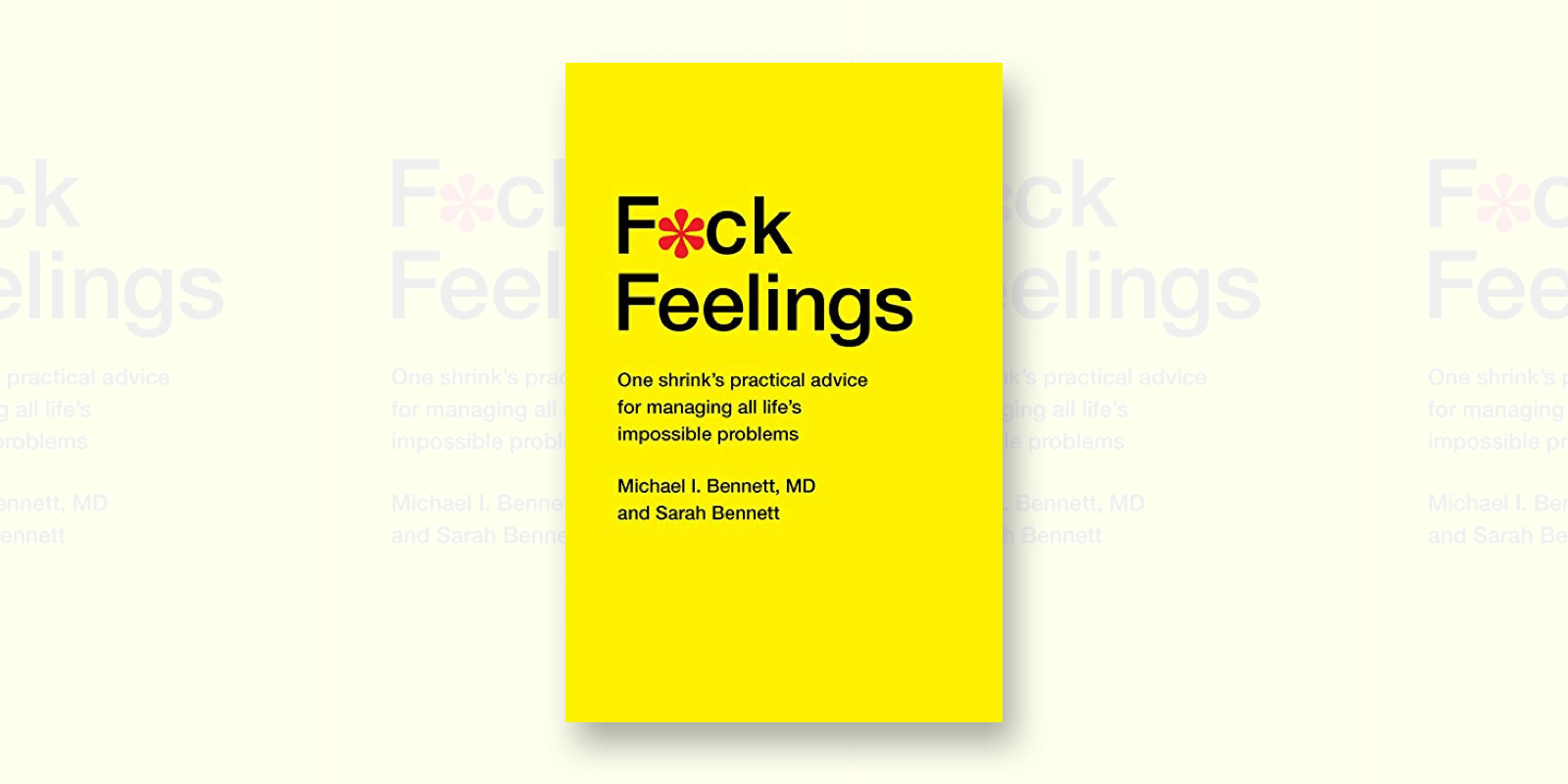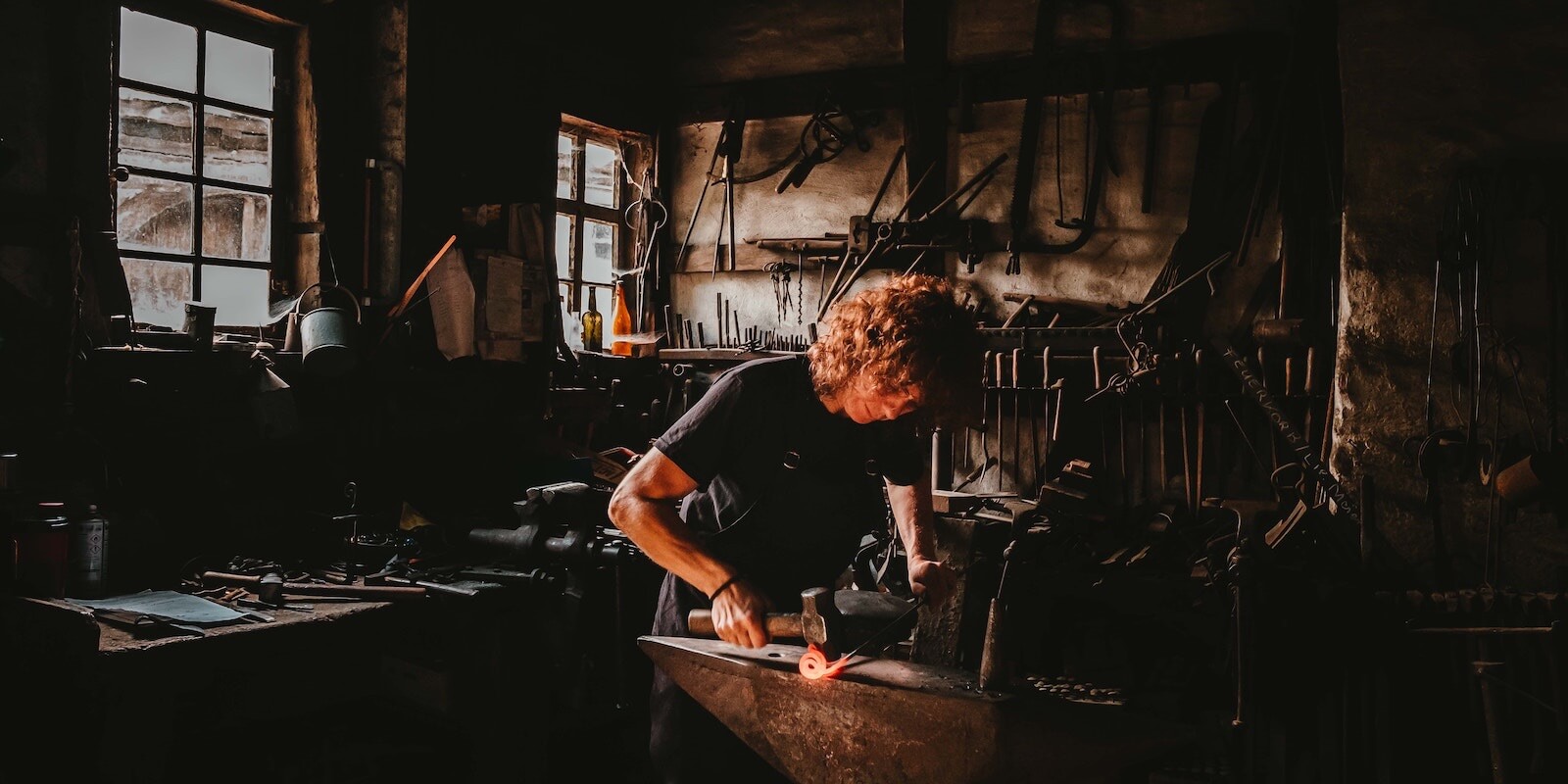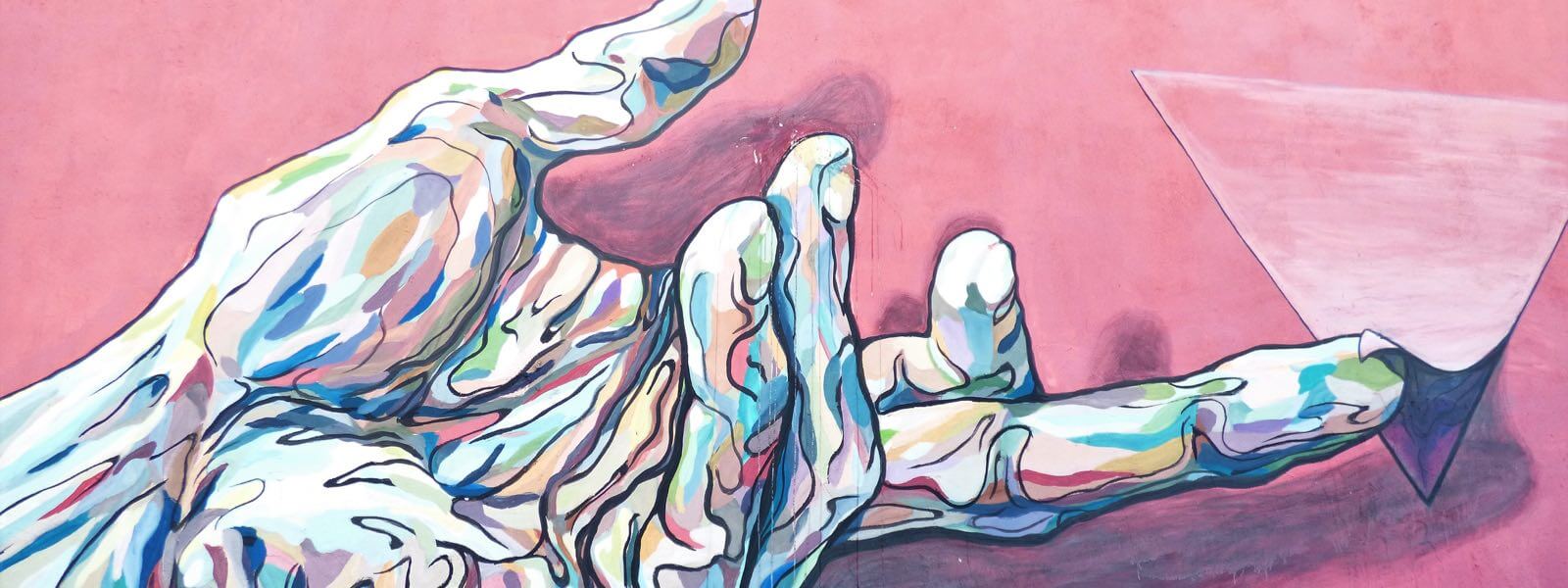I’ve been reading a lot of Winnie-the-Pooh with my daughters lately.
So I must have been primed to take notice when I saw someone tweet about a book called The Tao of Pooh by Benjamin Hoff.
Here’s how the author describes his intention for the book:
To write a book that explained the principles of Taoism through Winnie-the-Pooh, and explained Winnie-the-Pooh through principles of Taoism.
In addition to introducing me to some of the core tenets of Taoism, this book really made me think about how much of my own approach to mental health and emotional well-being aligns with Taoism specifically—even more so than Buddhism which has had a much stronger explicit influence on psychology and mental health over the past few decades.
As with all of my quote review articles, in the rest of this piece, I’ll share some of my favorite quotes from the book, along with some brief reflections of my own.
On Trying Too Hard
The more man interfered with the natural balance produced and governed by the universal laws, the further away the harmony retreated into the distance. The more forcing, the more trouble.
The ability to do hard things can easily turn into a liability…
- Working hard in a career you hate
- Working hard in an unhealthy relationship
- Working hard to convince someone with no interest in listening
Just because it’s difficult doesn’t make it right.
On Serenity
Happy serenity is the most noticeable characteristic of the Taoist personality.
How many people in your life would you describe as serene?
If you can think of a few, what do you suppose is responsible for their serenity?
If you can’t think of anyone, why do you suppose that is?
On Busyness
“Ouch!” Said Pooh, landing on the floor.
“That’s what happens when you go to sleep on the edge of the writing table,” I said. “You fall off.”
“Just as well,” said Pooh.
“Why’s that?” I asked.
“I was having an awful dream,” he said.
“Oh?”
“Yes. I’d found a jar of honey…,” he said, rubbing his eyes.
“What’s awful about that?” I asked.
“It kept moving,” said Pooh. “They’re not supposed to do that. They’re supposed to sit still.”
“Yes, I know.”
“But whenever I reached for it, this jar of honey would sort of go someplace else.”
“A nightmare,” I said.
“Lots of people have dreams like that,” I added reassuringly.
“Oh,” said Pooh. “About unreachable jars of honey?”
“About the same sort of thing,” I said. “That’s not unusual. The odd thing, though, is that some people live like that.”
“Why?” Asked Pooh.
“I don’t know,” I said. “I suppose because it gives them something to do.”
“It doesn’t sound like much fun to me,” said Pooh.
Chronic busyness—and all the stress and anxiety that goes with it—is often a symptom of being afraid to be alone with yourself. Just you and your own mind hanging out quietly without distractions.
If that idea terrifies you, it’s probably worth reflecting on.
On Efficiency
The efficiency of Wu Wei is like that of water flowing over and around the rocks in its path—not the mechanical, straight-line approach that usually ends up short-circuiting natural laws, but one that evolves from an inner sensitivity to the natural rhythm of things.
Sustainable productivity (and happiness, I imagine) comes from working with things as they are rather than what we wish them to be.
On Simplicity
Things in their original simplicity contain their own natural power, power that is easily spoiled and lost when that simplicity is changed.
Seems like good advice for parenting.
The longer I’m a parent, the less interested I am in who I think my kids should be and the more excited I am about discovering who they will become.
On Discovering Your Place
Everything has its own place and function. That applies to people, although many don’t seem to realize it, stuck as they re in the wrong job, the wrong marriage, or the wrong house. When you know and respect your own inner nature, you know where you belong. You also know where you don’t belong. One man’s food is often another man’s poison, and what is glamorous and exciting to some can be a dangerous trap too others.
If you’re too focused on who you want to be, it’s hard to see who you are. And if you don’t know who you are, how can you know who you want to be?
On Wishful Thinking
The way of self-reliance starts with recognizing who we are, what we’ve got to work with, and what works best for us.
Life is like poker… Sometimes you get to trade for a couple new cards (draw poker), and sometimes you don’t (hold ‘em).
In either case, the focus should be on playing well the cards you’re dealt, not fantasizing about rummaging through the deck and picking your perfect hand.
There’s a lot of opportunity cost in wishful thinking.
On Goodness-of-Fit
There’s nothing wrong with not being able to whistle, especially if you’re a fish. But there can be lots of things wrong with blindly trying to do what you aren’t designed for. Fish don’t live in trees, and birds don’t spend much time underwater if they can help it. Unfortunately, some people—who always seem to think they’re smarter than fish and birds, somehow—aren’t so wise.
Reminds me of my favorite quote about mental health:
Before you rush to diagnose yourself with depression, make sure you’re not just surrounded by assholes.
On Self-Awareness
Inner nature, when relied on, cannot be fooled. But many people do not look at it or listen to it, and consequently do not understand themselves very much. But having little understanding of themselves, they have little respect for themselves, and are therefore easily influenced by others.
Self-awareness is always the first step. Always.
If you don’t know who you are and what you want, how can you know which road to take?
On Nothingness
To use the mind as it’s all too commonly used, on the kinds of things it’s usually used on, is about as inefficient and inappropriate as using a magic sword to open a can of beans. The power of a clear mind is beyond description. But it can be attained by anyone who can appreciate and utilize the value of nothing.
So much suffering comes from messy minds—worried, ruminative, judgmental, and frantic minds.
This is the real lesson of mindfulness and most forms of meditation: It’s okay to let your mind do nothing and just be.
It’s okay to observe without thinking, to notice without judging, to enjoy without analyzing.
On Negative Emotions
Instead of struggling to erase what are referred to as negative emotions, we could learn to use them in positive ways… while pounding on piano keys may produce noise, removing them doesn’t exactly further the creation of music. The principles of music and living aren’t all that different.
Would you really want to live your life exclusively in the major key?
What would rock n roll be without Eleanor Rigby, All Along the Watchtower, Paint it Black, and Stairway to Heaven?
On Overthinking
The surest way to become tense, awkward, and confused is to develop a mind that tries too hard—one that thinks too much. The animals in the forest don’t think too much; they just are. But with an overwhelming number of people, to misquote an old western philosopher, it’s the case of “I think, therefore I am confused.”
Thinking is a tool. And like any tool, it can be used well or poorly.
When it’s used poorly, it’s usually because we forget that we’re using it in the first place.
On Conflict
The Wu Wei approach to conflict-solving can be seen in the practice of the Taoist martial art T’ao Chi Ch’uan, the basic idea of which is to wear the opponent out either by sending his energy back at him or by deflecting it away, in order to weaken his power, balance, and position-for-defense. Never is force opposed with force; instead, it is overcome with yielding.
Optimize for flexibility over strength.
On Contentment
“Say, Pooh, why aren’t you busy?” I asked.
“Because it’s a nice day,” said Pooh.
“Yes, but…”
“Why ruin it?” He said.
“But you could be doing something important,” I said.
“I am,” said Pooh.
“Oh? Doing what?”
“Listening,” he said.
“Listening to what?”
“To the birds. And that squirrel over there.”
“What are they saying?” I asked.
“That it’s a nice day,” said Pooh.
“But you know that already,” I said.
“Yes, but it’s always good to hear that somebody else things so, too,” he replied.
I’m frequently disappointed when I read new books. I’m never disappointed when I re-read my favorite books.
I’m frequently disappointed when I get to know new people. I’m never disappointed when I talk with good friends.
Growth is good. But so is contentment.
On Time Management
It’s really great fun to go someplace where there are no timesaving devices because, when you do, you find that you have lots of time. Elsewhere, you’re too busy working to pay for machines to save you time so you don’t have to work so hard. The main problem with this great obsession for Saving Time is very simple: you can’t save time. You can only spend it. But you can spend it wisely or foolishly. The Bisy Backson has practically no time at all, because he’s too busy wasting it by trying to save it. And by trying to save every bit of it, he ends up wasting the whole thing.
An obsession with time management is usually a sign of unclear values.
On Mental Minimalism
An empty sort of mind is valuable for finding pearls and tails and things because it can see what’s in front of it. An overstuffed mind is unable to. While the clear mind listens to a bird singing, the stuffed-full-of-knowledge-and-cleverness mind wonders what kind of bird is singing. The more stuffed up it is, the less it can hear through its own ears and see through its own eyes. Knowledge and cleverness tend to concern themselves with the wrong sorts of things, and a mind confused by knowledge, cleverness, and abstract ideas tends to go chasing off after things that don’t matter, or that don’t even exist, instead of seeing, appreciating, and making use of what is right in front of it.
Your mind is the ultimate junk drawer.
Imagine how you’d feel if you cleaned it out?
On Margin
Like silence after noise, or cool, clear water on a hot, stuffy day, emptiness cleans out the messy mind and charges up the batteries of spiritual energy.
Every good designer knows the value of whitespace.
What would your life look like if you had more white space… more emptiness?
On Loneliness
Because many people are afraid of emptiness, however, because it reminds them of loneliness. Everything has to be filled in, it seems—appointment books, hillsides, vacant lots—but when all the spaces are filled, the loneliness really begins. Then the groups are joined, the classes are signed up for, the gift-to-yourself items are bought. When the loneliness starts creeping in the door, the television set is turned on to make it go away. But it doesn’t go away. So some of us do instead, and after discarding the emptiness of the big congested mess, we discover the fullness of nothing.
The antidote to loneliness is friendship. With other people eventually. But first with yourself.
What would it take to build a better relationship with yourself—with your own thoughts, feelings, desires, expectations, values, and beliefs?
That’s a big question, but it seems obvious enough that in order to build a good relationship with anyone you need time. Time to simply be together and get to know each other.
How often do you make time to get to know yourself?
If you liked this, you might enjoy these…
A few articles and podcasts of mine on a similar topic:





1 Comment
Add YoursHi Nick
Thanks for those thoughts and quotes …I am lying on my sofa with my dog doing very little just semi – dozing and I can see my copy of The Tao of Pooh in my bookcase …busy doing nothing is rather lovely just being me said Pooh !